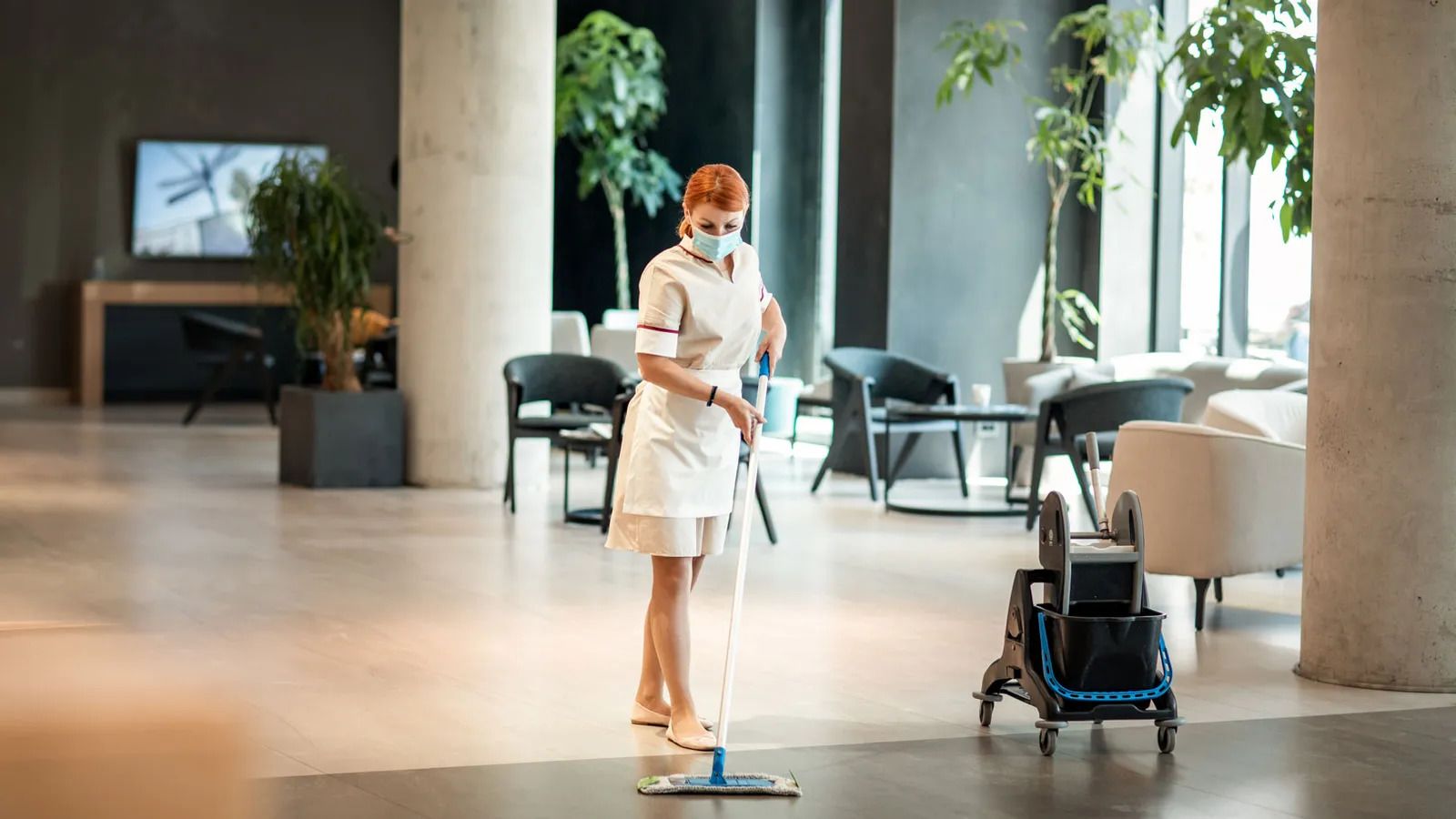
Artificial Intelligence: Jobs That AI Can’t Replace
Since the start of the industrial revolution, there have been threats that new machines – from mechanised looms to microchips – would usurp human jobs. For the most part, the humans have prevailed. Now, say some experts, with AI ubiquity on the horizon, the threat’s being realised: the robots really are coming for some jobs.
A March 2023 report from Goldman Sachs estimated that AI capable of content generation could do a quarter of all the work currently done by humans. Across the European Union and US, the report further notes, 300 million jobs could be lost to automation. And that could be dire, says Martin Ford, author of Rule of the Robots: How Artificial Intelligence Will Transform Everything.
“It's not just that this would happen to individuals, but it could be pretty systemic,” he says. “It could happen to a lot of people, potentially quite suddenly, potentially all at the same time. And that has implications not just for those individuals, but for the whole economy.”
Thankfully, it’s not all bad news. The experts issue their warnings with a caveat: there are still things AI isn’t capable of – tasks that involve distinctly human qualities, like emotional intelligence and outside-the-box thinking. And moving into roles that centre those skills could help lessen the chances of being replaced.
“I think there are generally three categories that are going to be relatively insulated in the foreseeable future,” says Ford. “The first would be jobs that are genuinely creative: you’re not doing formulaic work or just rearranging things, but you're genuinely coming up with new ideas and building something new.”
 While a robot may ostensibly provide a faster diagnosis, patients will still want humans to guide and educate them
While a robot may ostensibly provide a faster diagnosis, patients will still want humans to guide and educate them
That doesn’t necessarily mean all jobs that are considered ‘creative’ are safe. In fact, things like graphic design and visual art-related roles may be among the first to go; basic algorithms can direct a bot to analyse millions of images, allowing AI to master aesthetics instantly. But there’s some security in other kinds of creativity, says Ford: “in science, and medicine and law … people whose job is coming up with a new legal strategy or business strategy. I think that there's going to continue to be a place there for human beings”.
The second insulated category, he continues, is jobs that require sophisticated interpersonal relationships. He points to nurses, business consultants and investigative journalists. These are jobs, he says, “where you need a very deep understanding of people. I think it’ll be a long time before AI has the ability to interact in the kinds of ways that really build relationships”.
The third safe zone, says Ford, “are jobs that really require lots of mobility and dexterity and problem-solving ability in unpredictable environments”. Many trade jobs – think electricians, plumbers, welders and the like – fall under this umbrella. “These are the kinds of jobs where you're dealing with a new situation all the time,” he adds. “They are probably the hardest of anything to automate. In order to automate jobs like this, you would need a science fiction robot. You’d need Star Wars’s C-3PO.”
While humans will likely remain in jobs that fall within those categories, that doesn’t mean those professions are totally insulated from the ascent of AI. In fact, says Joanne Song McLaughlin, associate professor of labour economics at the University of Buffalo, US, most jobs, regardless of industry, have aspects that are likely to be automated by the technology.
“In many cases, there’s no immediate threat to jobs,” she says, “but tasks will change.” Human jobs will become more focused on interpersonal skills, continues Song McLaughlin. “It’s easy to imagine that, for instance, AI will detect cancers way better than humans could. In the future, I’m assuming doctors will use that new technology. But I don’t think the doctor’s whole role will be replaced.”
 Trade jobs and jobs that require a great deal of mobility are more likely to be insulated from automation
Trade jobs and jobs that require a great deal of mobility are more likely to be insulated from automation
While a robot may ostensibly do a better job of finding cancer, she says, most people will still want a doctor – a real person – to be the one to tell them about it. That’s true of almost all jobs, she adds, and so developing those distinctly human skills could help people learn to do their jobs alongside AI.
“I think it’s smart to really think, ‘what kind of tasks within my job will be replaced, or will be better done by computer or AI? And what's my complementary skill?’” She points to bank tellers, who once had to be very accurate money counters. Now, that task has been automated – but there’s still a place for the teller. “The task of money counting became obsolete because of a machine,” she says. “But now, the tellers are more focused on connecting with customers and introducing new products. The social skill has become more important.”
It’s important to note, says Ford, that an advanced education or a high-paying position is not a defence against AI takeover. “We might think the person in the white-collar job is higher on the food chain than someone who drives a car for a living,” he says. “But the white-collar employee’s future is more threatened than the Uber driver, because we still don’t have self-driving cars, but AI can certainly write reports. In many cases, more educated workers are going to be threatened more than the least educated workers. Think of the person that works cleaning hotel rooms – it's really hard to automate that job.”
In short, seeking roles in dynamic, shifting environments that include unpredictable tasks is good way to stave off job loss to AI. At least, for a while.











